Tech
Sign up for our newsletter
We summarize the week's scientific breakthroughs every Thursday.
-
 Tech
TechA chip made with carbon nanotubes, not silicon, marks a computing milestone
Silicon’s reign in cutting-edge electronics may soon over. The carbon nanotube could be its successor.
-
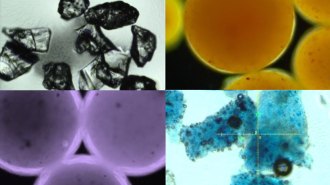 Tech
TechTiny magnetic coils could help break down microplastic pollution
Carbon nanotubes designed to release plastic-eroding chemicals could clear the long-lasting trash from waterways.
-
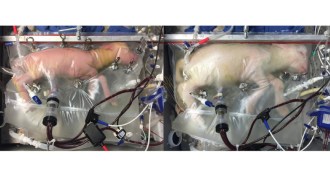 Tech
Tech50 years ago, lambs survived but didn’t thrive inside artificial wombs
Artificial wombs to support preemie babies are closer to reality.
-
 Tech
TechThis solar-powered device produces energy and cleans water at the same time
Someday, the two-for-one machine could help curb electricity and freshwater shortages.
-
 Artificial Intelligence
Artificial IntelligenceArtificial intelligence has now pretty much conquered poker
A new artificial intelligence called Pluribus is a real card shark at six-player no-limit Texas Hold’em.
-
 Planetary Science
Planetary ScienceSee how visualizations of the moon have changed over time
To celebrate the 50th anniversary of the moon landing, here’s a collection of images that show how the moon has been visualized over the ages.
-
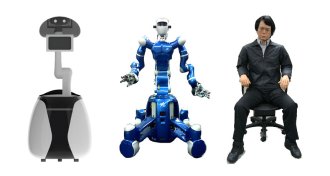 Neuroscience
NeuroscienceThis brain region may be why some robots send chills down your spine
Scientists may have traced the source of the “uncanny valley” sensation in the brain.
-
 Tech
TechHow NASA’s portable atomic clock could revolutionize space travel
An atomic clock designed to enable self-driving spaceships and GPS-like navigation on other planets is about to take a yearlong test flight.
-
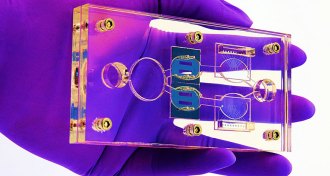 Life
LifeThis body-on-a-chip mimics how organs and cancer cells react to drugs
The multiorgan system could help test new and existing drugs for effectiveness and unwanted side effects.
-
 Particle Physics
Particle PhysicsDiamond detectors could aid the search for dark matter
Elusive dark matter particles could be spotted when they slam into electrons or atomic nuclei within diamond, scientists say.
-
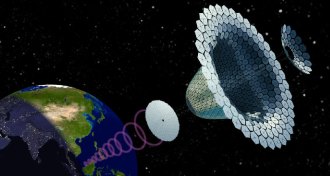 Astronomy
Astronomy50 years ago, scientists wanted to build solar panels on the moon
In 1969, scientists proposed building solar panels on the moon to convert the sun’s energy into electricity that can be used on Earth.
By Kyle Plantz -
 Physics
PhysicsThis tabletop device turns the quantum definition of a kilogram into a real mass
The mini Kibble balance will measure 10 grams to an accuracy of a few ten-thousandths of a percent.